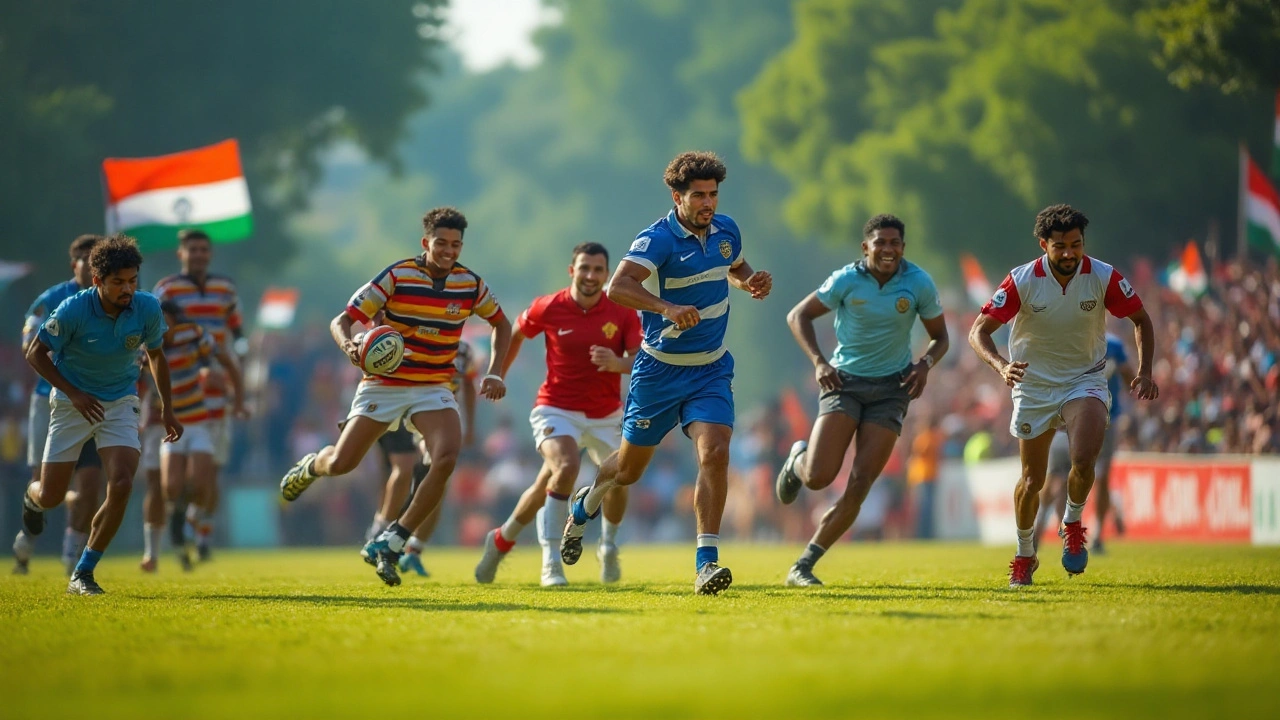Rugby Vocabulary: Essential Terms Every Fan Should Know
If you’ve ever watched a rugby match and felt lost when the announcer shouted "try" or "scrum," you’re not alone. The sport has its own set of words that sound foreign at first, but once you get the basics, following the game becomes a lot easier. Below you’ll find the most common terms, short explanations, and a few regional nicknames that will help you sound like a seasoned supporter.
First up, the positions. The forwards are the big, strong players who do most of the heavy lifting – they’re called props, hooker, locks, flankers, and number 8. The backs are the faster, more agile guys – scrum‑half, fly‑half, centres, wings, and full‑back. Knowing who does what on the field lets you spot the key moments, like when a fly‑half makes a strategic kick or a wing darts down the sideline.
Scoring has its own lingo too. A "try" is worth five points and happens when a player grounds the ball in the opponent’s in‑goal area. After a try, the team attempts a "conversion" – a kick at goal for two extra points. A "penalty" kick and a "drop goal" each add three points. When you hear commentators talk about a team adding points via a conversion, you now know exactly what they mean.
Common On‑Field Terms
During play, you’ll hear words like "tackle," "ruck," and "maul" a lot. A tackle is simply bringing an opponent to the ground. After a tackle, if the ball is on the ground and players from both sides pile over it, that’s a ruck – a contest for possession on the ground. If the ball stays in a player’s hands and the group stays on their feet, that’s a maul, which looks like a moving huddle.
Other crucial phrases include "lineout," "scrum," and "turnover." A lineout occurs when the ball goes out of bounds and the two teams form a line to jump and catch a thrown ball. A scrum is a set piece where the forward packs lock together and push to win the ball after a minor infringement. A turnover happens when the defending team gains possession, often after a successful ruck or a forced error.
Regional Slang and Nicknames
Rugby fans love to add local flavor to the game. In Australia, the sport is often called "footy," and you’ll hear terms like "the wallabies" for the national team. In the UK, people might refer to a "drop‑kick" as a "drop‑kick" but also use the phrase "going for broke" when a player attempts a risky move. In New Zealand, the All Blacks are simply “the Blacks,” and a quick pass is sometimes dubbed a "spoon‑pass."
These nicknames aren’t just for fun – they help you blend in with the crowd and understand the banter. When you hear someone say, "That was a proper scrummage," they’re talking about a tough, gritty scrum. Or if a commentator mentions a "career‑changing try," they’re highlighting a try that could change the outcome of the whole match.
Putting these terms into practice is easy. The next time you watch a game, pause each time a new word pops up and match it with the definition you just learned. Over a few matches, the vocabulary will stick, and you’ll find yourself commenting on plays with confidence. Before long, you’ll not only understand the action but also enjoy the colorful language that makes rugby such a unique sport.
